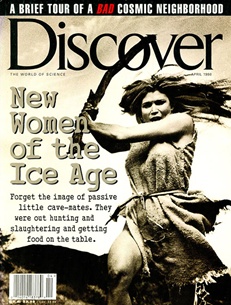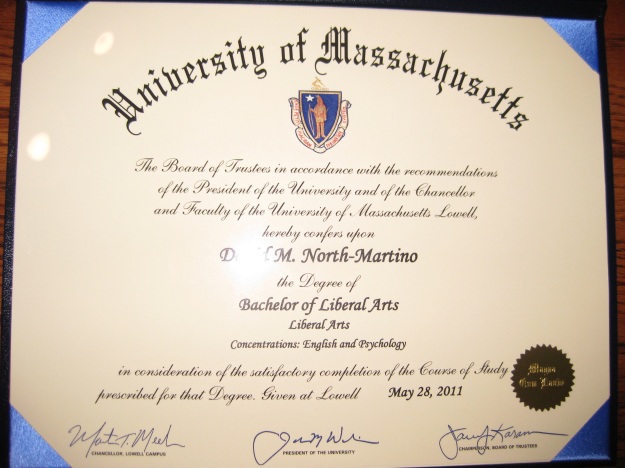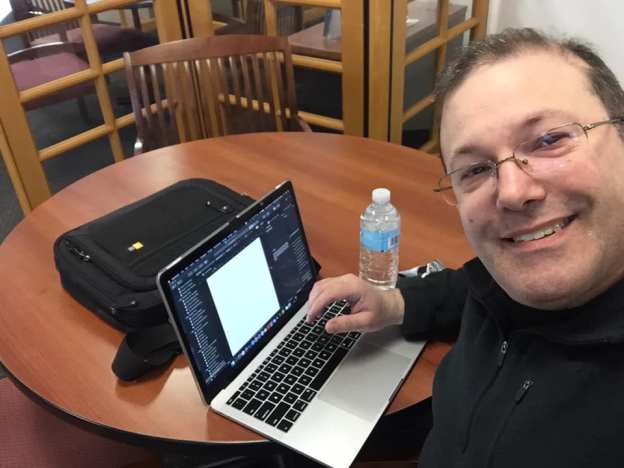Graven Image by David North-Martino ©2004, 2007, 2019
Graven Image originally appeared in The Swamp, and Afterburn SF
“Our clients all have a peculiar fear. They’re not convinced their loved ones will stay dead,” the Director of Sanguine Mortuary said.
Hatch fought for control, he thought he might go from smirk, to grin, to all-out laughter.
The Director, his face as dead as any of the clients entombed in Sanguine’s walls, stared at Hatch from behind an expensive looking oak desk. The dire need for the job forced Hatch’s expression to the same state as the director’s name.
“Mr. Stone, I——”
“Jonathan, I know what I’m telling you might be hard to accept, but we provide a valuable service to our clientele.” Stone wrinkled his face into his best mortician’s smile.
“Mr. Stone,” Hatch said. “I really need this job. Whether I believe or not, I can watch your building and everything in it.”
“You seem like a good fellow. Pity, companies will throw away employees after a decade of service.” Mr. Stone gently placed Hatch’s resume on the desk. “I’ll give you a chance, just keep your wanderlust to a minimum. The last guard couldn’t contain his curiosity. If he hadn’t up and disappeared, I would have had to fire him.”
Elation! At this point, any job was a good job. He made a mental note to pick up a bottle of wine on the way home. He and his wife would, at last, have something to celebrate. But behind the euphoria and relief, something nagged at him. Later, when he gave it some thought, after half a bottle of wine and with his wife in a satisfied sleep beside him, questions arose, questions he couldn’t answer. They chattered through his mind, lulling him into a troubled sleep.
#
“Uh——what’s on the monitors?” Hatch asked. The surreal images were better than caffeine, no way he would drift off with those things staring at him.
“Those? Oh go on, take a good look.” Michael Evans, the Second-Shift Sergeant, said. “What do they look like to you?”
“Looks like dead people.”
“Those are our charges, three-hundred, and thirty-eight of ‘em.” Evans seemed proud with the knowledge. “Oh, don’t worry, they ain’t gonna bother you much or entertain you for that matter.”
“Then why are we monitoring them?”
“Just in case they wake up,” Evans said. Hatch felt a chill shoot into his groin. Soon he would be here alone——alone with them.
Then Evans broke into a fit of heaving laughter. “Naw, they ain’t gonna wake up. I’ve been working here for five years, since I retired from the military, and I ain’t never seen a-one so much as wrinkle a nose.”
Hatch stared at the monitors again.
“See, we have some very superstitious rich people around the world, and Sanguine helps alleviate their fear——and a good amount of their cash.” Evans shook his head back and forth in mock disbelief. “Got to show the client something right? Show the client that us security types are watching their loved ones twenty-four-by-seven. Kinda makes me chuckle. But it’s a good gig, especially on off shifts.
“We don’t get no visitors, grieving family members or anything like that. We let the dead lay, play a little poker——you’ll have to play solitaire——and walk around a couple times. Make sure things are safe and secure——for the world outside I guess.”
He laughed again as if the whole thing were ludicrous.
Evans showed Hatch around for the rest of the hour. He saved one piece of trivia for last.
“This is what I call the Bat-Phone,” Evans said, and Hatch understood why. The phone looked like an old model from the 1960s, rotary dial and all, and it was colored red like on the TV show. “In the unlikely chance that——something unusual happens——you pick up this phone and——well, after that I don’t know, but I’m sure you won’t find out. Damn thing probably don’t even have service.”
Evans had a pitying look on his face, like he was about to leave his favorite cat at the Vet to be euthanized. Hatch wondered if he could handle staying at Sanguine Mortuary alone for fifteen minutes, never mind eight hours.
“What happened to the last officer who worked the third shift?”
“Harold Drendle? Shoot——he’d worked here long as I did. We used to talk a little at shift change, and he confessed to me he was having marital problems, problems caused by money, which by the way is how they always start, and then one day, I guess he was sick of it. He up and abandoned post sometime before shift change and he hasn’t been seen since.
“He told me in confidence he was planning to go to Hawaii, had been socking away a little here and there. So, don’t you be letting your mind wander and go thinking nonsense. You’ll get used to this place soon enough.”
#
Soon enough just wasn’t soon enough. Evans hadn’t been gone ten minutes, and Hatch was ready to abandon post. The ghoulish images only provided unwelcome company.
Hatch turned his attention to the phone. He reached over, touched the receiver’s smooth plastic. Who was on the other end?
What was on the other end?
The thought made him shudder. He withdrew his hand.
He couldn’t just sit there with the monitors tuned to Dead-TV. He grabbed the Mag light, the weight comforting in his hand, and headed out for the first round of the evening.
Hatch’s footfalls echoed through the empty mausoleum. Every fifteen feet the wall receded to reveal a cluster of grave nooks. Accent lights reflected dimly off metal plates, revealing the names of the departed. They surrounded him. Outnumbered him.
He rounded a bend and found the first key-point next to the chapel door.
How long had it been since he had last attended church? He couldn’t remember. He touched the tour recorder to the plastic key, listened for the chirp, and then looked at the LCD screen.
ChapHell, next key point inside.
Hatch shook his head, maybe when he got back to the command center he would fix the typo.
Hatch flicked on the lights. The antiseptic nondenominational room radiated comfort, as if something from beyond could reach out and protect all those who entered.
A feral cat’s mew? A crying child? A vocalized rush of wind raging through the hall toward him?
Hatch crossed the threshold, pulled at the cherry-wood door and held it shut. The chapel shook and the doors threatened to pull from his grasp. Then the pounding shrill scream stopped, and Hatch stood in silence.
“Damn trains,” Hatch said under his breath. Then he remembered he was standing in a chapel. He looked up. “Sorry.”
Hatch continued with the tour. He came to a short stairwell that led down to the basement level. Cautiously, he descended.
Hatch switched on the flashlight and adjusted the beam to full width. The key-point waited at the end of the hall surrounded by darkness. Hatch felt around for a light switch but found nothing. His pulse pounded in his temples.
Making quick time, he passed closed doors on either side of the hall. He touched the tour reader to the key and waited impatiently for the chirp.
A red door to his right caught his attention. He tried the handle.
Locked.
He glanced back toward the stairs, then back to the door. His curiosity got the better of him, and he tried his keys until one fit the lock.
Match stepped inside a room filled with black metal file cabinets. The beam of light illuminated a unique cabinet——a red cabinet.
He found a jagged hole where the lock should have been, as if someone had cut the mechanism out of the frame. Hatch opened the top drawer and then rifled through musty folders and yellowed papers. Most seemed to be nothing more than death records. Every soul buried at Sanguine must have been stored in that room. But then he found something else.
A letter, age stained and watermarked, written on parchment with what appeared to be a quill pen, ignited Hatch’s curiosity. His eyes widened as he scanned strange sections:
Thank you again for taking this burden from me. I am getting much too old to act as custodian any longer…
The families absolutely insist on having guards. I know it sounds ridiculous, as if flesh and blood could really protect anyone from what is now in your possession…
Feeding time is distasteful, but it lasts a relatively short time. I was lucky to only witness it for two full cycles in the twenty years since I acquired the collection. The dead must feed before they sleep…
The dead must feed?
What the hell did that mean?
A booming metallic reverberation made him jump. The sound had come from the hall. His mouth went dry and his throat tightened, but he had to check it out. That’s what he was being paid to do.
Hatch cautiously stepped out into the hall.
The reflection of his flashlight beam caught movement through a window in one of the doors.
Anybody Home?
Hatch inched closer, shined the light inside——recoiled.
A man stood, if that’s what you could call the thing that stood before him, dressed in a moth-eaten suit, bending over what looked like a metal cadaver table.
The terrible thing that looked like a man chomped and smacked his lips as he devoured what remained of a body on the table. The head and chest were all that remained of the corpse ——everything else had been consumed.
Hatch hacked and heaved, but nothing came up, as if his insides had turned to dust. He looked back at the window.
The ghoul turned its head and looked at him, still stuffing flesh in-between the stitches that held his lips together.
The ghoul grinned at him.
Then came the screams.
Hatch raced through the halls double-time, the shrieks of the dead nipping at his ears.
Which way out?
He couldn’t remember.
He passed the chapel. Sanctuary wouldn’t do, he needed the command center.
He needed the phone!
Hatch slammed shut the command center door.
No lock.
The irony sent him into hysterics.
Hatch turned around. The monitors were still trained on the coffins——some were empty.
The cadavers that remained opened their eyes.
Shit!
Hatch reached for the phone——hesitated——picked it up.
The phone automatically dialed.
The ringing scratched in his left ear, the dead wailed in his right.
“Pick up——damn it! pick up!”
The ringing stopped.
A moment of hesitation on the other end of the line.
“I told you to curb your curiosity, Jonathan.”
The door buckled. Glass shattered. All went black.
***
Even with his eyes closed, Hatch could sense that Sergeant Evans stared at him, stared at the monitors. Curiosity could be a terrible thing, recognition worse.
The high-pitched chatter from the others Hatch only heard in a sanguine whisper, but he could understand what they wanted, what he also wanted. One last time before the sleep.
The hunger rose in him—-in them——and in unison——and to the terror of Michael Evans——they all opened their eyes.
-FIN-





